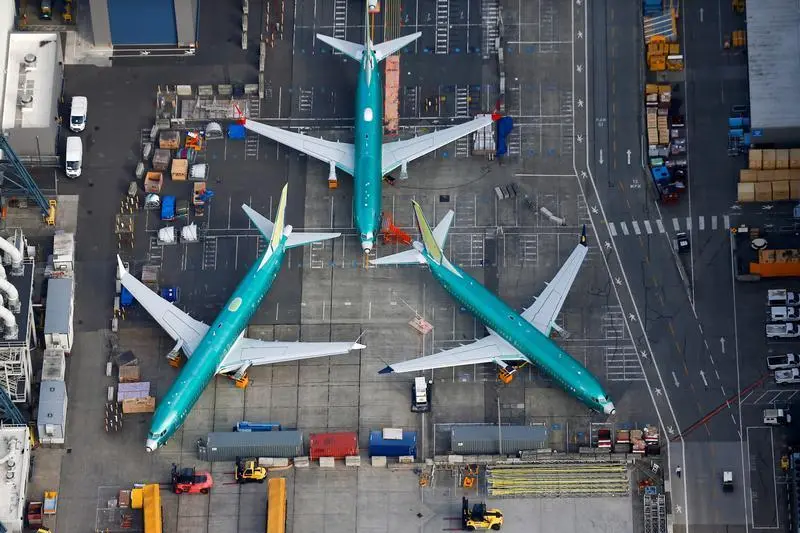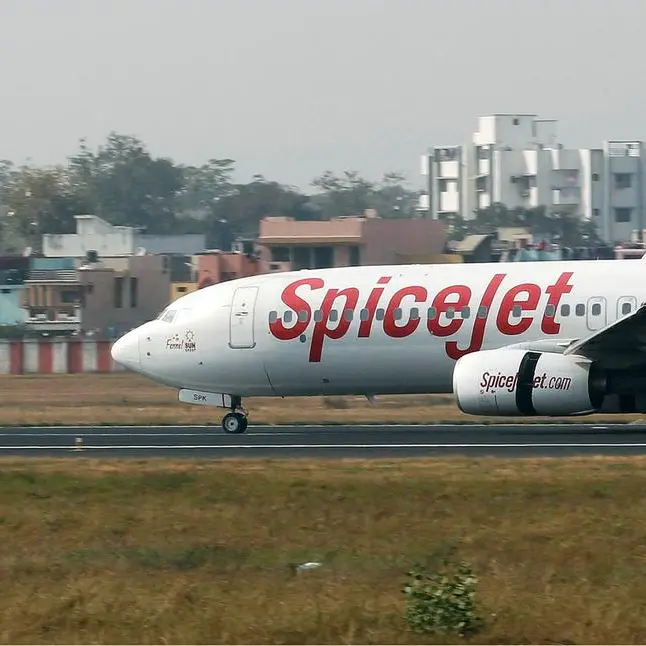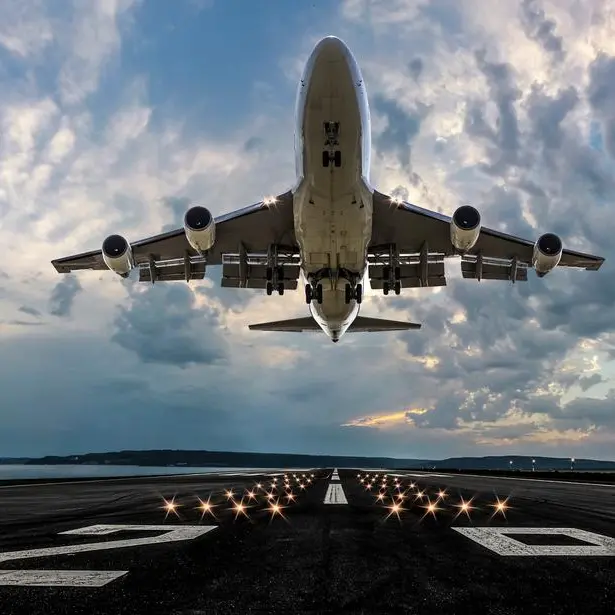PHOTO
The U.S. Justice Department said on Tuesday that Boeing Co had breached its obligations in a 2021 agreement that shielded the planemaker from criminal prosecution over fatal 737 MAX crashes in 2018 and 2019 that killed 346 people.
The Justice Department said in a court filing in Texas that the U.S. planemaker had failed to "design, implement, and enforce a compliance and ethics program to prevent and detect violations of the U.S. fraud laws throughout its operations."
Justice Department officials made the finding in the wake of a separate January in-flight blowout that exposed continuing safety and quality issues at Boeing. A panel blew off a new Boeing 737 MAX 9 jet during a Jan. 5 Alaska Airlines flight, just two days before the 2021 agreement shielding Boeing from prosecution over the previous fatal crashes expired.
The determination exposes Boeing to a potential criminal prosecution over the 2018 and 2019 crashes that could carry steep financial penalties and tougher oversight, deepening a corporate crisis and reputational damage stemming from the January blowout.
While Boeing is now subject to prosecution as a result of breaching the 2021 agreement, the Justice Department said in the court filing, officials will consider steps the planemaker has taken to address and remediate violation of the pact before determining how to proceed.
The Justice Department directed Boeing to respond by June 13 and intends to decide whether to prosecute Boeing by July 7, the filing said.
Boeing confirmed it had received word from the Justice Department of its determination that the company breached the 2021 deal, known as a deferred prosecution agreement, or DPA.
"We believe that we have honored the terms of that agreement, and look forward to the opportunity to respond to the Department on this issue," Boeing said in a statement late on Tuesday. "As we do so, we will engage with the Department with the utmost transparency, as we have throughout the entire term of the agreement, including in response to their questions following the Alaska Airlines 1282 accident."
The Justice Department declined to comment beyond the court filing.
Boeing's ongoing crisis has already resulted in a management shakeup and government investigations. During a U.S. Senate hearing in April, a Boeing engineer testified the company took dangerous manufacturing shortcuts with certain planes and sidelined him when he raised safety concerns, claims the company disputes.
Relatives of people killed in the crashes and their lawyers, meanwhile, had argued that Boeing violated the 2021 deal with prosecutors, which required the company to overhaul its compliance program. Federal prosecutors had previously agreed to ask a judge to dismiss a criminal charge against the planemaker so long as it complied with the deal's terms over a three-year period.
But the Jan. 5 in-flight blowout occurred just two days before the agreement expired. Justice Department officials weighed that incident as part of a broader probe into whether Boeing violated the deal, people familiar with the matter previously told Reuters.
Justice Department officials are set to meet with family members of the victims of the previous fatal crashes and their lawyers on May 31 to discuss their decision, according to correspondence Reuters reviewed.
"This is an important first step towards holding Boeing accountable for the deaths of 346 passengers and crew on the two flights," Paul Cassell, a lawyer representing victims' family members, told Reuters. "But now the Justice Department needs to move this prosecution forward, vigorously and effectively towards a conviction."
Erin Applebaum, another lawyer for victims' family members, told Reuters that she and her clients were "pleased that DOJ has chosen to do the right thing" and hoped a prosecution would follow.
NEXT STEPS
In January 2021, Boeing agreed to pay $2.5 billion to resolve a criminal investigation into the company's conduct surrounding the previous fatal crashes. The company agreed to compensate victims' relatives and overhaul its compliance practices as part of the deal with prosecutors.
The agreement gives U.S. officials six months from the deal's Jan. 7 expiration to decide whether to prosecute Boeing on a charge that the company conspired to defraud the Federal Aviation Administration or pursue other alternatives to dismissing the case.
Prosecutors can extend the 2021 settlement for another year or push for oversight by a court-appointed monitor, a costly change from the 2021 agreement where Boeing was allowed to oversee its own changes to its practices.
The Justice Department could also attempt to hit the planemaker with additional fines or push the company to plead guilty, an outcome that could affect Boeing's ability to secure government contracts, according to a Reuters review of prosecutors' actions following findings that companies violated other similar agreements.
Breaches of such agreements deferring prosecution are rare. But the Justice Department under President Joe Biden has ratcheted up scrutiny on repeat corporate wrongdoers and has penalized companies that violate these deals.
Just over a year ago, Sweden's Ericsson agreed to pay a hefty fine and plead guilty after violating its own 2019 deal with prosecutors.
(Reporting by David Shepardson in Washington and Mike Spector in New York; Additional reporting by Chris Prentice in New York. Editing by Leslie Adler, David Gregorio and Sonali Paul)





















